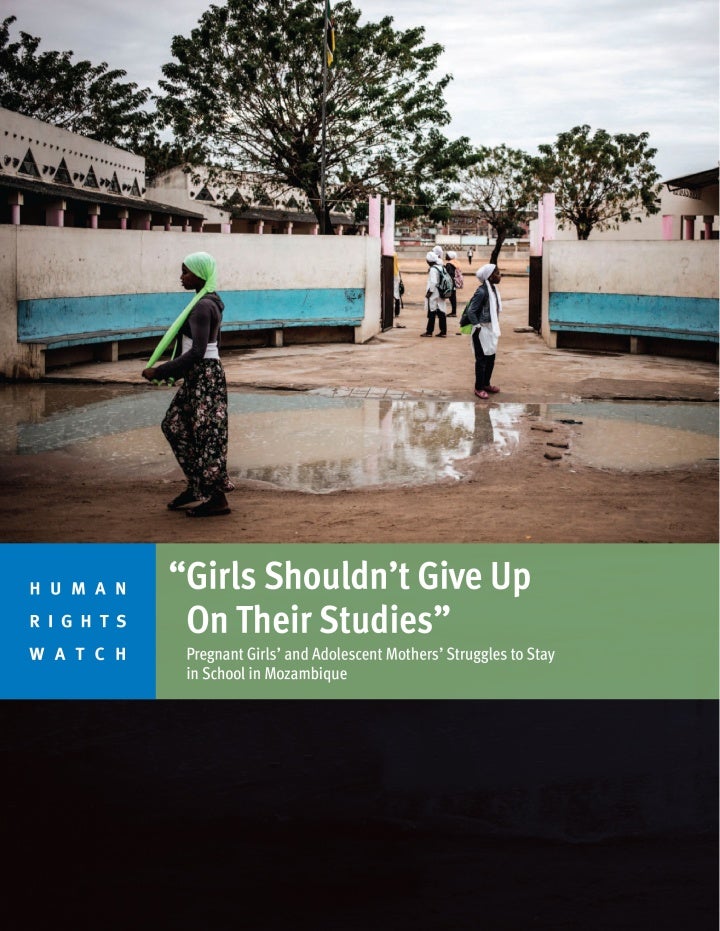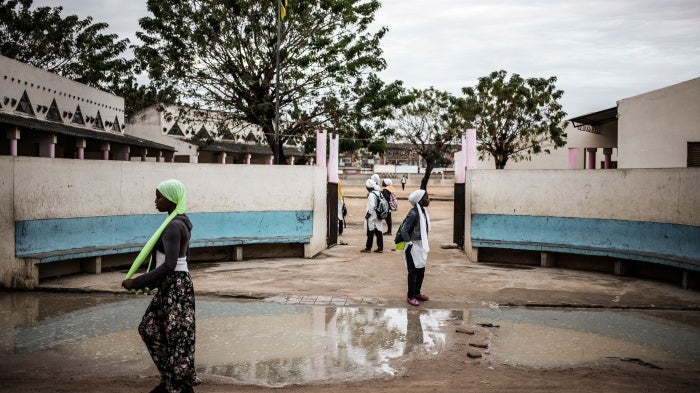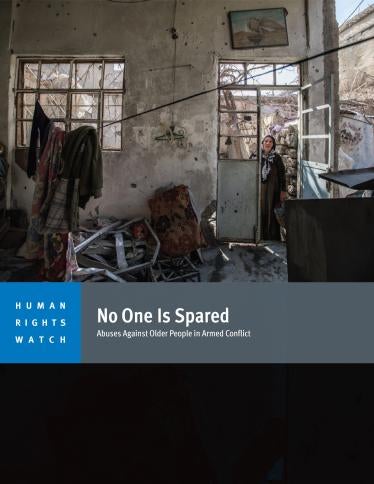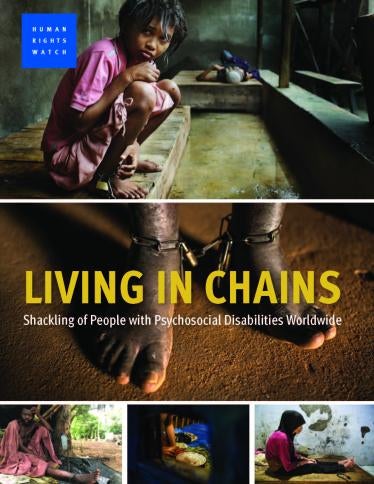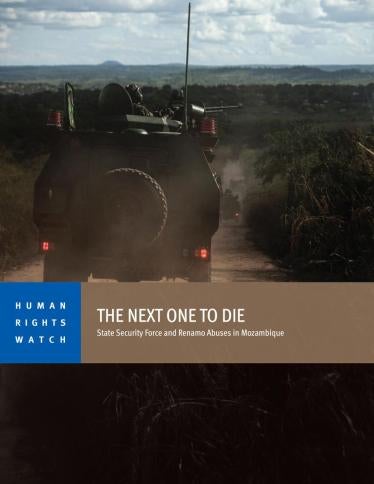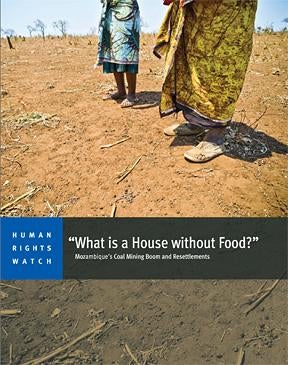“Girls Shouldn’t Give Up On Their Studies”
Pregnant Girls’ and Adolescent Mothers’ Struggles to Stay in School in Mozambique
The 52-page report, “‘Girls Shouldn’t Give Up On Their Studies’: Pregnant Girls’ and Adolescent Mothers’ Struggle to Stay in School in Mozambique,” documents numerous barriers faced by adolescent girls and women who are pregnant or parenting, and the problems they face when trying to stay in school. Students also lack or are denied access to sexual and reproductive health information, especially comprehensive sexuality education, as well as adolescent-responsive sexual and reproductive health services, including a wide range of contraceptive options and safe, legal abortion to the fullest extent allowed by law.
